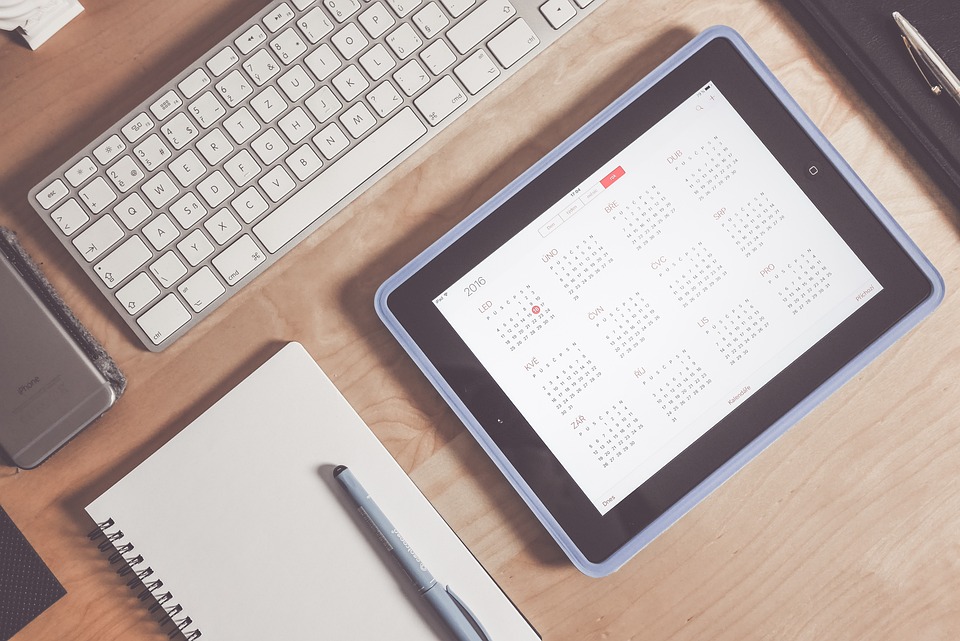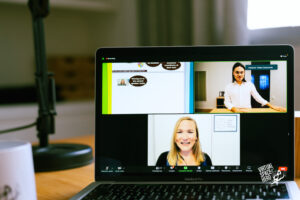Due to the current worldwide #Covid-19 developments many lecturers, educators, event organisers, and all learners needed to move to the virtual classroom within a few days or weeks. This has not been easy for all of us. At this point, we already have some more experience that we would like to share with you. Usually, we focus more on the educator side of things, but today we would like to bring to you the student’s point of view. Let’s improve our virtual learning experience!
This blog article summarises the main points from a #linkedinlive with the #virtualspacehero research team (Evelyn Stele, Katja Keischnigg, Hannah Tappeiner, Nina Wagner and Monika Ivanovic) and Barbara Covarrubias Venegas (Founder #virtualspacehero) on how to self-organise, self-motivate, and structure oneself for a better virtual learning experience.
What is Self-directed Learning, and Why is it Particularly Important in a Virtual Learning Environment?
Generally, self-directed learning can be described as the ability to learn completely independently and by oneself. This entails developing the skills needed to:
- Identify one´s knowledge gaps and pinpoint what needs to be studied to fill them
- Find reliable sources that provide the desired information
- Set realistic learning goals
- Develop a personal learning strategy to successfully reach them
- Evaluate the learning process afterwards to establish what worked well and what needs to be improved for the next time
Self-directed learning seems to be one of the aspects that learners still struggle with within the virtual space. This can be especially problematic since we know from research and experience that a high level of self-directed learning is necessary to succeed while studying online. No educator is physically present to tell the learners what to do, when, or how to do it. They need to find out by themselves how to study best and where to find the needed information.
“I started writing and researching about self-directed learning years ago. It appears that it is an aspect that many are still struggling with when it comes to online learning. As we know, a high level of it is needed in virtual learning. So learners should focus on building their skills in this area .” (Barbara Covarrubias Venegas)
What are Tips for Learners to Improve Their Virtual Learning Experience?
Learning virtually can be a big opportunity for learners. But it is also a responsibility. We are in charge of forming our learning experience and contributing to it. That’s why we want to share with you some # virtualspacehero-approved tips, that will help make your virtual learning experience the best possible.
✅ Turn on your camera (during lessons and team meetings): We get that this might be uncomfortable, especially at the beginning, when you are not used to it. But it is important to remember that where physical meetings are not possible, this is the only way to see each other’s faces. That is vital for creating trust and engagement in virtual teams.
“I can understand students that do not want to turn on their camera. At first, I did not feel comfortable using the camera either, because I did not understand the importance of it. After conducting our research, I know that you simply can not study effectively online, without turning on your camera.”. (Hannah Tappeiner)
✅Organize and structure your learning day (flexibly ): Having an overview of lectures, meetings, to-do´s, and deadlines is crucial for splitting your workload effectively. Being realistic when deciding what to do when and staying flexible (where possible) is key here. On the one hand, you do not want to overwhelm yourself with work, but on the other hand, you should not miss the opportunity to take a walk in the sun if the weather suddenly gets nice.
✅ Set boundaries: When studying and living happens in the same space, the boundaries between them tend to get blurry. Usually, the way to and from university/school serves as some type of barrier. Where this natural boundary between work- and private life ceases to exist, we have to create new ones. This can either be done with set times every day for studying and leisure or physically. (e.g. desk only for university/school work and couch only for relaxing)
✅ Get in the right mindset for being productive: Individuals do a lot of different things to make sure that their day will be productive. As always, you have to find out what works best for you here. Examples of activities that might help are a light workout or stretch, taking a shower, or simply making your bed. Some people even simulate a way to uni/work by taking a short walk around their neighbourhood, for example.
“Educators need to give the students a sense of importance for their lecture, while also showing them that their personal experience is important. This can happen via Email-reminders about upcoming lectures, the provision of extra information, or small, personal check-ins.” Monika Ivanovic
✅ Try to stay in close contact with your lecturers and classmates: Asking questions during physical classes is usually easy. Furthermore, you can probably just go to the lecturer’s office before or after class, should you need anything. Of course, this is not possible virtually. So do not be shy to send an Email to your lecturer or a text message to your classmates if you have any questions. Educators have the responsibility here to answer them and to initiate contact if there is no initiative from the learners.
“One of the main learnings that I took from the research project is how important structure and good organization are when working virtually. It ensures staying on track with your activities and guarantees that everybody in the team knows what to do when.” (Evelyn Stele)
What Tools Can Be Used to Structure Oneself Better in the Learning Process?
Of course, this topic again depends a lot on personal preference. But our favourite structuring tools are calendars (virtual and physical ones). But, why are calendars so helpful for structuring your learning days?



How Can You Motivate Yourself to Reach the Learning Objectives?
Motivating oneself to get things done at home can be hard sometimes. Distractions are everywhere, and sometimes it is just too tempting to stay in bed. But there are easy things that will help you stay motivated during your virtual learning journey (in addition to the ones mentioned above).
✨ Find yourself a study buddy: Studying with friends or classmates is a great way to motivate each other. Since we are used to studying together in a caffé or at university, we often forget that is also possible in the virtual space. Just decide on a time for a meeting and choose what you are going to study or do in that timeframe. Not everybody has to do the same thing, but telling somebody what you are going to do will give you a feeling of responsibility, and therefore more motivation. Resulting in a positive virtual learning experience for the both of you.
✨ Break down the learning content (“Chunking”): Dividing the workload will decrease the time you have to study at a time. Knowing that you only have to study for a limited amount of time will make it easier to just sit down and start. Furthermore, if divided realistically the workload will not seem as overwhelming.
“What helped me personally to stay motivated during my virtual learning process was breaking down what I had to learn into small portions. That way, I only had to spend a limited amount of time studying every day and did not get overwhelmed.” Katja Keischnigg
✨ Set yourself realistic goals: Reaching the goals we set ourselves feels good, while not being able to reach them just creates frustration. To keep your motivation level high and your frustration level low, the goals you set yourself should be realistically reachable. Be attentive to not try and fit too much work or studying into one single day. Do not forget that you are only human and not a machine. If for whatever reason you did not get everything done that you wanted to… tomorrow is another day.
Studying virtually can be a lot. But that’s why we are here to help! Go to our website, browse through our blog, and follow us on social media where we regularly post helpful information on how you can make your virtual learning experience the best possible.
✨✨ Become a #virtualspacehero! ✨✨






